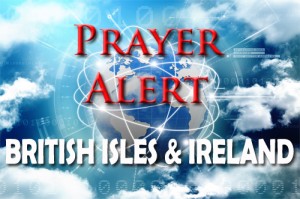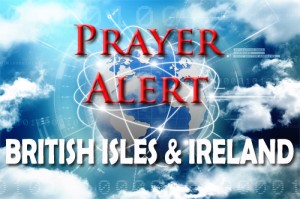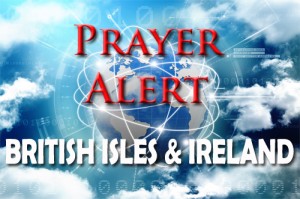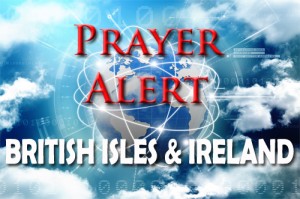Displaying items by tag: Politics
Windrush: immigration amnesty
Fifty years ago corner shops advertised rooms to let with the warning, ‘No coloureds, no Irish, no pets’. The early Windrush migrants from the Caribbean faced enormous prejudice as they played a vital part in rebuilding Britain after the Blitz. The Home Office later destroyed their landing passes and other documents. Now, fifty years later, they have been issued with deportation orders. They believe they are still facing prejudice. Recently their situation was highlighted in the media, which led to parliamentary debates. Boris Johnson said there needed to be an immigration amnesty for longstanding Commonwealth immigrants to prevent others from getting caught up in the same situation. They should not have to produce overly onerous amounts of evidence to prove that they have been living here for years. Pray for attitudes to change, and that we will now value our Commonwealth brothers and sisters properly.
Russian blogger’s comments on Brussels conference
The following is part of a translation from a Russian political blogger: ‘A Syrian donor conference opened in Brussels under the guidance of the UN and EU. It included non-governmental organisations of Syria who are officially trying to distance themselves from Middle Eastern affairs, but at the same time retain a presence there.’ Their objectives were raising funds for the Syrian population and refugees and resuming Syria’s negotiations with UN help. The blogger said, ‘Syria has become an arena of global confrontation, where each of the external players is solving its own tasks in the region. In these conditions, there can be no question of any observance of the law of war. Hence - the use of poisonous substances, mercenaries, the use of the local population as hostages.’ He also said that these attempts to help refugees reflect idealism, and where there is idealism there is hope - hope for peace.
Tunisia: potential for change
There are many Christian ministries in Tunisia but only one officially recognised Christian body, a training ministry called the Augustine Association, which managed to get registration during the upheaval of the Arab Spring. Christians mostly gather for worship in homes, but some are too fearful of persecution to attend such meetings. After many postponements, municipal elections will be held on 6 May. Tunisian Christians ask for God’s hand to be over these elections so that their country will once again become a blessing for the whole region, as it was in the days of the early Church. The media reported that over 75% of the registered candidates are under the age of 45, with over 50% under 35. The high number of young fresh politicians running for election for the first time came as a shock to the political parties and blocs, and indicates potential changes in the coming years. See
Venezuela: poverty, politics, and protests
71% of Venezuelans identify themselves as Catholic, and the Church runs numerous charities plus 170 schools for poor children. The country faces 50% hyperinflation, food shortages, black market influences on prices, and failing health systems, with medicine and equipment increasingly not available. Widespread crime is forcing churches to remain locked. There will be a snap election on 20 May, and in the streets there are ongoing protests against a coalition regime they do not trust. Tensions have grown between President Maduro and local bishops. The president has asked them to leave politics out of the pulpit, calling political comments ‘disrespectful’. Not a single thing can be done easily in Venezuela: paying bills, buying food, commuting, visiting loved ones, finding decent-quality women’s hygiene products. In times of crisis like these, religion plays a comforting role for many. See also
Armenia: urgent international appeal
On 21 April, 37 human rights organisations and NGOs made an urgent appeal to the UN Council of Europe on behalf of Armenia. The opening sentence was, ‘We, the undersigned civil society organisations, wish to bring to your attention the political situation in Armenia that is a clear confrontation between the existing autocratic corrupt regime and the hope for democracy.’ Until 2015 Armenia had a semi-presidential governance system with direct elections for the president to hold a maximum of two terms of service. To maintain power after the expiry of his two terms, President Sargsyan changed the constitution. Since mid-March civil society groups have campaigned to oppose his election of a prime minister with a life-long dictatorship (a common trend in former Soviet countries). The peaceful protests, started independently by different groups, quickly attracted wide support of tens of thousands of dissatisfied people, who are facing brutal attacks by police and criminal groups every day. See
Iraq and Afghanistan: elections
Iraqi religious figures and institutions are debating the 12 May elections in public. Some call for boycotting them, some recommend voting for new candidates. The Shi’ite religious establishment, believing the previous ‘corrupt people’ robbed the nation, insists that politicians who failed to live up to executive or legislative responsibility must not be re-elected: ‘People must not vote for them again, even if they are members of their clan or sect’. Iraqi people groups have strong tribal loyalty in constituencies. Many see voting as ineffective. In Afghanistan long-delayed elections should be possible on 20 October 2018 despite major security and logistic challenges. Lack of security allowed a suicide bomber to kill 57 and injure 119 at a voter registration centre in Kabul, where civilians had gathered to receive identification cards that would enable them to vote. Pray for God’s protection over all registration centres, and the police officers guarding them in the runup to the elections. See
White House Bible study group
In 2010 Capitol Ministries began a Bible study for representatives, which now has almost fifty members. When four of the group were elected to the Senate, they asked for a senators' Bible class, which began in 2015. Two months after Donald Trump took office, the same process led to a group for cabinet members. Trump started appointing to his cabinet all the men who were in the House and Senate bible study, men who were known to be believers. Unlike secular media, Christians noticed that the appointees had something in common - they were strong in Christ. Jeff Sessions (former health secretary), Tom Price, and others then started a cabinet Bible study. For the first time in 100 years, the US Cabinet has a Bible study group.
Guernsey: Christian leaders oppose assisted suicide
41 Guernsey church leaders wrote an open letter opposing introducing assisted suicide. Their letter said, ‘We believe the proposal to introduce a legal provision for assisted dying to be misplaced and dangerous for us as a community, particularly for the most vulnerable in our island. We believe the States of Guernsey should focus on the care of vulnerable people, support hospice care, increase mental health provision, and care well for those with age-related dementia. As a community we need to celebrate and support all of life, and not actively seek to terminate life. We fully support the care that our wonderful nurses, doctors, specialists and those in the caring professions provide on the island.’ The signatories include a hospice chairman and members of the Catholic, Anglican and Methodist churches. If the measure is passed by its parliament, the island will be the first place in the British Isles to legalise assisted suicide. Guernsey is a largely self-governing British Crown dependency.
Northern Ireland: women of faith and the peace process
Many believe that the Northern Ireland peace process is ‘tarnished’. The ‘Peace People’ are well-known in Northern Ireland, but other groups of Catholic and Protestant women are not. At recent seminars in Belfast, Catholic, Presbyterian, Methodist and Church of Ireland women recorded experiences of the ‘Troubles’ and how women of faith are ahead of their time in developing approaches to repairing the harms of today caused by the conflicts of yesterday. They gave innovative examples of ecumenical activism and community living that defied and transcended sectarianism, including the secret back-channel talks between politicians from different Backgrounds, critical in bringing about a cessation of the violence. We can pray for the continued work of ‘Cornerstone,’ a live-in, praying Community for reconciliation who network with other groups to be a ‘presence’ in their communities; and for ‘Widows Against Violence Empowered’ (WAVE), who help women traumatised after tragedy.
Labour party and anti-Semitism
Speaking during the House of Commons debate, Labour MP Luciana Berger said that after she spoke out about anti-semitism, people have accused her of being a ‘paid-up Israeli operative’, a traitor, and an ‘absolute parasite’, and told her to ‘get out of the country and go back to Israel’. A new survey of 1,500 people by the Independent newspaper revealed almost two-thirds of them believe Jeremy Corbyn’s Labour party has a problem with racism or religious prejudice. A majority believed Mr Corbyn had handled anti-semitism claims badly. The party has been subject to protests from the Jewish community, and Israel’s Labour Party has severed ties with the leader’s office. Labour’s Ruth Smeeth, who has received many abusive messages (such as ‘Hang yourself you Zionist filth, you’re a cancer of humanity’. She said it was truly heartbreaking that she had to stand in Parliament Square to protest against the anti-Semitism that was ‘engulfing’ parts of the party.









